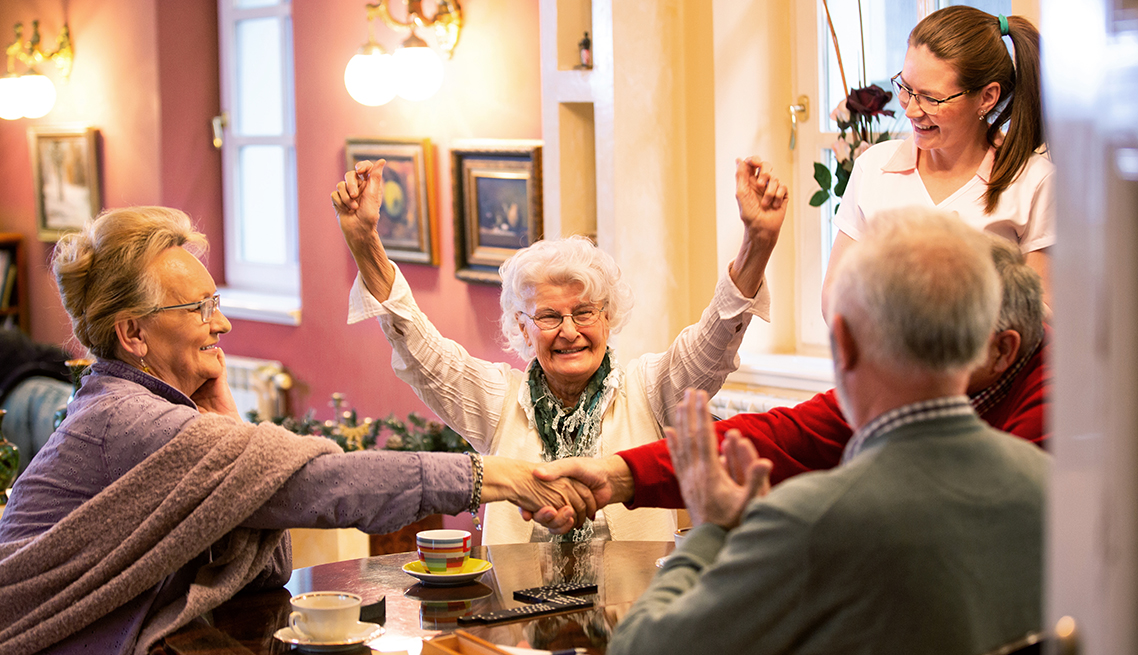In the landscape of elderly care options, family care homes emerge as a personalized and intimate alternative to larger assisted living facilities and nursing homes. These small-scale residential settings offer a unique blend of professional care and a homelike atmosphere, making them an ideal choice for seniors who require assistance with daily living activities but wish to maintain a sense of independence and community.
What is a Family Care Home?

A family care home, also known as a residential care home or adult family home, is a private residence that has been adapted to provide care for a small group of residents, typically between two to six individuals. These homes cater to seniors who need assistance with activities of daily living, such as bathing, dressing, meal preparation, and medication management, but do not require the intensive medical care provided in nursing homes.
Key Features of Family Care Homes
- Personalized Care: With fewer residents, family care homes can offer more personalized attention and care plans tailored to the individual needs and preferences of each resident.
- Homelike Environment: Family care homes are designed to feel like a private home, with shared living spaces, private or semi-private bedrooms, and communal dining areas, fostering a warm and welcoming atmosphere.
- Professional Staff: Caregivers in family care homes are trained to provide a range of services, from personal care and medication management to social activities and transportation, ensuring residents receive comprehensive support.
- Community Integration: Residents of family care homes benefit from living in a residential neighborhood, allowing for easier access to community resources and events, and promoting a sense of belonging.
- Safety and Security: Family care homes are equipped with safety features and adaptations to meet the needs of elderly residents, including grab bars, ramps, and emergency call systems, ensuring a safe living environment.
A family care home, also known as a residential care home or adult family home, offers numerous benefits for both the caregiver and the elderly person. This small-scale living arrangement provides a unique blend of personalized care and a homelike atmosphere, making it an ideal choice for seniors who require assistance with daily living activities but wish to maintain a sense of independence and community. Here’s how a family care home can benefit both parties:
For the Elderly Person:
- Personalized Care: With a smaller number of residents, family care homes can offer more personalized attention and care plans tailored to the individual needs and preferences of each resident.
- Homelike Environment: Family care homes are designed to feel like a private home, with shared living spaces, private or semi-private bedrooms, and communal dining areas, fostering a warm and welcoming atmosphere.
- Safety and Security: These homes are equipped with safety features and adaptations to meet the needs of elderly residents, including grab bars, ramps, and emergency call systems, ensuring a safe living environment.
- Social Interaction: Living in a traditional house appeals to many residents. They can sit in the backyard or on the front porch and eat in a cozy dining room instead of a large dining hall. Visitors may like the home-like atmosphere, too, making it more like visiting them at home.
- High Staff-to-Resident Ratio: The staff-to-resident ratio in a family care home is much higher than that at an assisted living facility, meaning patients get quick, personalized care and a stronger relationship with their caregiver.
For the Caregiver:
- Reduced Stress and Burnout: Professional caregivers in family care homes assume the responsibility of daily care, allowing family members to have a break and alleviate stress. This can lead to better peace of mind for family caregivers.
- Support with Complex Health Needs: Family care homes often have connections with community resources and healthcare providers, offering caregivers access to support groups, educational programs, and specialized services for older adults.
- Enhanced Family Relationships: When the responsibility of caregiving is shared with professionals in a family care home, it can lead to enhanced family relationships. Family members can spend quality time visiting their loved ones without the stress of constant caregiving tasks, allowing for more meaningful interactions and creating lasting memories.
- Cost-Effectiveness: Family caregiving can be less expensive compared to the costs associated with senior living facilities. Living with a family member or staying in their own home under the oversight of family can be more cost-effective, as it often involves fewer expenses related to medical care, activities, and more.
- Flexibility and Control: Family caregivers often have more control and flexibility over the care provided in a family care home setting. They can work closely with the care home staff to ensure that their loved one’s needs are being met in a way that aligns with their preferences and values.
In conclusion, family care homes offer a beneficial solution for both the elderly person and their caregivers, providing a balance of personalized care, safety, and a nurturing environment.
Choosing a Family Care Home
When considering a family care home for your loved one, it’s important to assess the quality of care, the qualifications of the staff, the cleanliness and comfort of the home, and the overall atmosphere. Touring the home, speaking with current residents and their families, and reviewing state licensing and inspection reports can provide valuable insights into the suitability of a family care home.
Conclusion
Family care homes offer a unique solution for seniors seeking a balance between personalized care and the comfort of a homelike setting. These small, residential care settings prioritize the well-being and independence of each resident, providing a nurturing environment that feels like family. For those exploring care options, Medflyt’s home care services ny offer an extension of the family care home philosophy, delivering compassionate and personalized care directly to seniors in their own homes.
